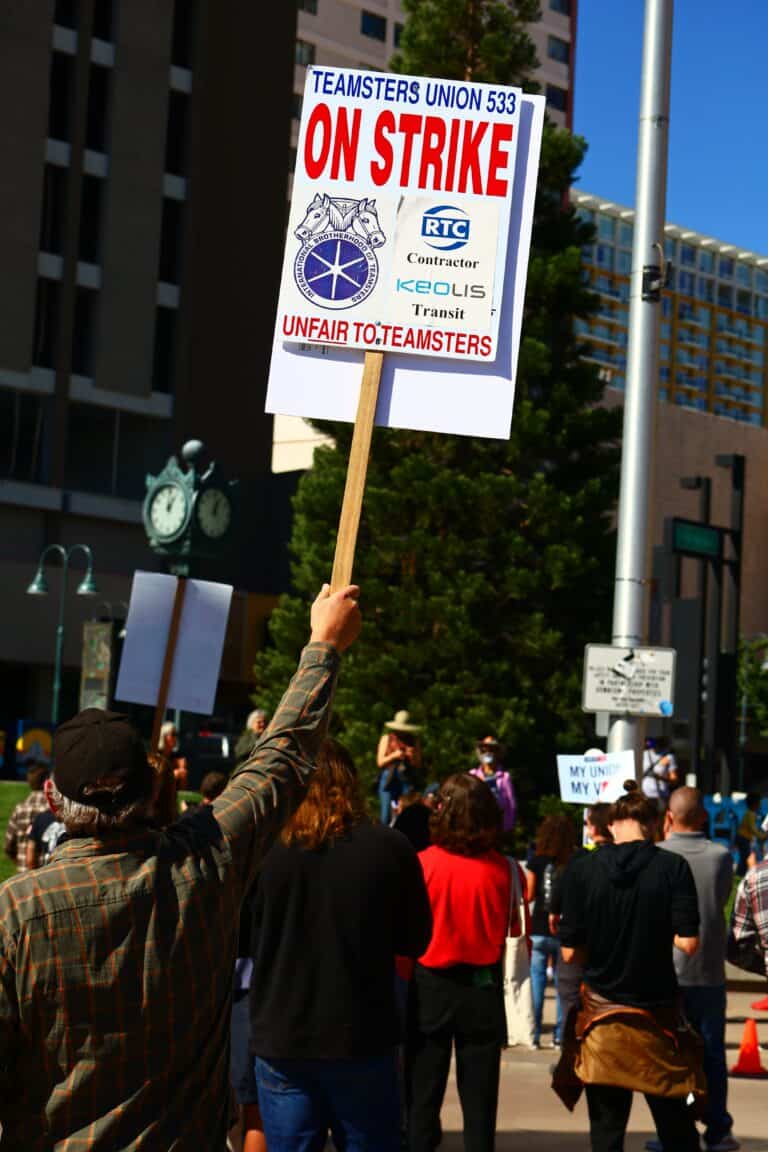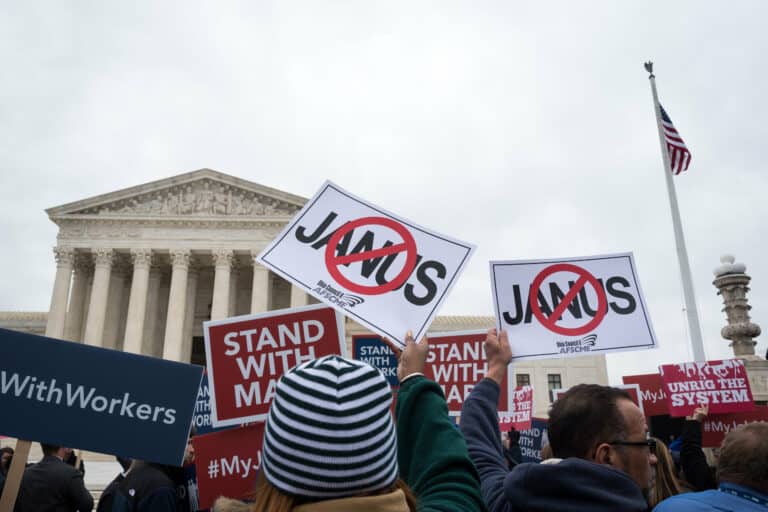
Benjamin Sachs is the Kestnbaum Professor of Labor and Industry at Harvard Law School and a leading expert in the field of labor law and labor relations. He is also faculty director of the Center for Labor and a Just Economy. Professor Sachs teaches courses in labor law, employment law, and law and social change, and his writing focuses on union organizing and unions in American politics. Prior to joining the Harvard faculty in 2008, Professor Sachs was the Joseph Goldstein Fellow at Yale Law School. From 2002-2006, he served as Assistant General Counsel of the Service Employees International Union (SEIU) in Washington, D.C. Professor Sachs graduated from Yale Law School in 1998, and served as a judicial law clerk to the Honorable Stephen Reinhardt of the United States Court of Appeals for the Ninth Circuit. His writing has appeared in the Harvard Law Review, the Yale Law Journal, the Columbia Law Review, the New York Times and elsewhere. Professor Sachs received the Yale Law School teaching award in 2007 and in 2013 received the Sacks-Freund Award for Teaching Excellence at Harvard Law School. He can be reached at [email protected].
Yesterday’s New York Times reports on an extraordinary feature of the restaurant industry. Briefly, food service workers in four states (Texas, California, Illinois and Florida) are required to take a food safety training class every several years for which they are charged about $15. The company that provides the mandatory training to nearly all workers is called ServSafe, and it is owned by the National Restaurant Association. According to the Times, the fees that ServSafe charges for the mandatory training are used to fund the Restaurant Association’s political lobbying efforts, including the Association’s efforts to block minimum wage increases for restaurant workers. As the Times put it, “[m]ore than 3.6 million workers have taken this training, providing about $25 million in revenue to the restaurant industry’s lobbying arm since 2010.”
What do workers think about this arrangement? Most are kept in the dark about it, but those who are aware are unsurprisingly not happy. Again, from the Times story:
“I’m sitting up here working hard, paying this money so that I can work this job, so I can provide for my family,” said Mysheka Ronquillo, 40, a line cook who works at a Carl’s Jr. hamburger restaurant and at a private school cafeteria in Westchester, Calif. “And I’m giving y’all money so y’all can go against me?”
So states are requiring workers to pay a fee to an organization that then uses the fees to fund political operations which many of the workers oppose. Sound familiar? It should. That’s because the Supreme Court has held that states may not require workers to pay fees to a union because to do so is to compel the workers to fund speech with which they may disagree. Indeed, the impermissibility of using mandatory fees for political expenditures has been established for decades. As the Court made clear in Abood (and reaffirmed in Janus), it views such compelled subsidization of political speech as unconstitutional under the First Amendment. But the food worker training system outlined in the Times has many of the same constitutional defects that the Court ascribes to mandatory union fees. (Whether ServSafe constitutes an effective monopoly in any of the four states, including whether workers have adequate notice that they can choose an alternative training provider, are important questions but are unlikely to change the underlying analysis.) Put differently, if mandatory union fees are unconstitutional so too are these mandatory food safety training fees, as long as the fees are used to fund political expenditures.
We await the National Right to Work Committee’s lawsuit against the National Restaurant Association.










Daily News & Commentary
Start your day with our roundup of the latest labor developments. See all
December 22
Worker-friendly legislation enacted in New York; UW Professor wins free speech case; Trucking company ordered to pay $23 million to Teamsters.
December 21
Argentine unions march against labor law reform; WNBA players vote to authorize a strike; and the NLRB prepares to clear its backlog.
December 19
Labor law professors file an amici curiae and the NLRB regains quorum.
December 18
New Jersey adopts disparate impact rules; Teamsters oppose railroad merger; court pauses more shutdown layoffs.
December 17
The TSA suspends a labor union representing 47,000 officers for a second time; the Trump administration seeks to recruit over 1,000 artificial intelligence experts to the federal workforce; and the New York Times reports on the tumultuous changes that U.S. labor relations has seen over the past year.
December 16
Second Circuit affirms dismissal of former collegiate athletes’ antitrust suit; UPS will invest $120 million in truck-unloading robots; Sharon Block argues there are reasons for optimism about labor’s future.